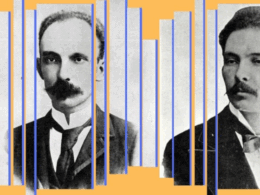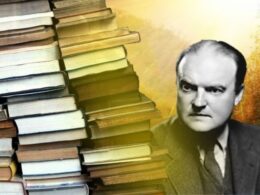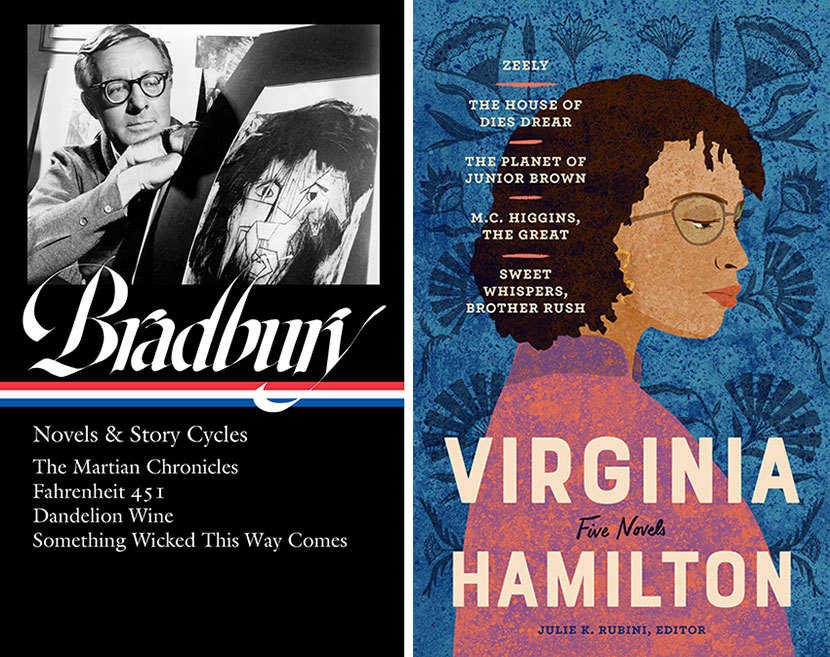
Library of America’s slate of titles for the second half of 2021 is perhaps unprecedented in its scope and variety. Six writers join the series for the first time, and novels and short stories, humor, books for young readers, war memoirs, nature writing, crime fiction, a classic work of revisionist history, and a lavish celebration of the art of translation are all part of the offerings arriving between June and November this year.
Check out the list below for details about contents and publication dates for all our summer and fall releases, and scroll further down the page for a fuller description of each new title.
LIBRARY OF AMERICA SERIES
Elizabeth Spencer
Novels & Stories
Michael Gorra, editor
The Voice at the Back Door • The Light in the Piazza • Knights and Dragons • Stories
Library of America #344 / ISBN 978-1-59853-686-7
June 2021
O. Henry
101 Stories
Ben Yagoda, editor
Library of America #345 / ISBN 978-1-59853-690-4
June 2021
S. J. Perelman
Selected Writings
Adam Gopnik, editor
Library of America #346 / ISBN 978-1-59853-690-4
August 2021
Ray Bradbury
Novels & Story Cycles
Jonathan R. Eller, editor
The Martian Chronicles • Fahrenheit 451 • Dandelion Wine • Something Wicked This Way Comes
Library of America #347 / ISBN 978-1-59853-700-0
September 2021
Virginia Hamilton
Five Novels
Julie K. Rubini, editor
Zeely • The House of Dies Drear • The Planet of Junior Brown • M.C. Higgins, the Great • Sweet Whispers, Brother Rush
Library of America #348 / ISBN 978-1-59853-701-7
September 2021
John Williams
Collected Novels
Daniel Mendelsohn, editor
Butcher’s Crossing • Stoner • Augustus
Library of America #349 / ISBN 978-1-59853-702-4
October 2021
W.E.B. Du Bois
Black Reconstruction
Eric Foner & Henry Louis Gates, Jr., editors
Library of America #350 / ISBN 978-1-59853-703-1
October 2021
World War II Memoirs: The Pacific Theater
Elizabeth D. Samet, editor
E. B. Sledge, With the Old Breed at Peleliu and Okinawa • Samuel Hynes, Flights of Passage •
Alvin Kernan, Crossing the Line
Library of America #351 / ISBN 978-1-59853-704-8
November 2021
Rachel Carson
The Sea Trilogy
Sandra Steingraber, editor
Under the Sea-Wind • The Sea Around Us • The Edge of the Sea
Library of America #352 / ISBN 978-1-59853-705-5
November 2021
SPECIAL PUBLICATIONS
American Christmas Stories
Connie Willis, editor
ISBN 978-1-59853-706-2
October 2021
Molière: The Complete Richard Wilbur Translations [Two volumes]
Introduction by Adam Gopnik
Volume One: The Bungler • Lover’s Quarrels • The Imaginary Cuckold, or Sganarelle • The School for Husbands • The School for Wives • Don Juan
Volume Two: The Misanthrope • Amphitryon • Tartuffe • The Learned Ladies
Volume One ISBN 978-1-59853-707-9 / Volume Two ISBN 978-1-59853-708-6 /
Boxed set ISBN 978-1-59853-709-3
November 2021
PAPERBACKS
Mary Jane Ward
The Snake Pit
Afterword by Larry Lockridge
ISBN 978-1-59853-680-5
June 2021
Dolores Hitchens
Sleep with Strangers
Foreword by Steph Cha
ISBN 978-1-59853-697-3
July 2021
Dolores Hitchens
Sleep with Slander
Foreword by Steph Cha
ISBN 978-1-59853-698-0
July 2021
Over the course of a career that spanned six decades, the southern novelist and short story writer Elizabeth Spencer (1921–2019) established herself as one of the finest literary artists of a generation that included Flannery O’Connor, Carson McCullers, and Eudora Welty. Arriving just ahead of Spencer’s centennial, this definitive volume brings together three remarkable novels—The Voice at the Back Door, a shrewd and sensitive look at racial politics in a quiet Mississippi town during the late Jim Crow era that anticipates Harper Lee’s To Kill a Mockingbird; the beloved classic The Light in the Piazza, a celebration of the possibilities of love set amidst the splendors of Florence; and its “dark companion,” Knights and Dragons, about a woman working in Rome who is obsessed with the enigmatic specter of her ex-husband—and a selection of nineteen stories that reveals Spencer, as Richard Ford writes, as “a rare and true master” of the form.
Born William Sidney Porter, O. Henry (1862–1910) is best known today for his short story “The Gift of the Magi.” But that legacy does short shrift to one of America’s most beloved writers, the author of more than 400 stories whose full range and powers earn him a place alongside Ring Lardner and James Thurber as one of our most accomplished humorists. 101 Stories has been selected and expertly annotated by best-selling author Ben Yagoda and includes such favorites as “The Ransom of Red Chief” and “The Last of the Troubadours” along with “The Caballero’s Way,” which created the character of The Cisco Kid, and “The Cop and the Anthem.” This volume presents stories from all of O. Henry’s collections, including the Honduras stories published in Cabbages and Kings while Porter was hiding there to escape an embezzlement indictment, as well as the most generous selection ever published of his New York (which he called Baghdad-on-the-Subway) and Texas stories. Also gathered here are previously uncollected stories and five published in these pages for the first time. This is the only O. Henry volume any reader will need.
S. J. Perelman (1904–1979) wrote for the Marx Brothers films Horse Feathers and Monkey Business and won an Oscar for his screenwriting on Around the World in Eighty Days, but he remains best known for the many sketches and essays he contributed to The New Yorker during its golden age of humor. In these short comic pieces—Perelman called them feuilletons—his penchant for wordplay, witticism, spoofery, self-deprecation, and plain zaniness are on full display. Editor Adam Gopnik has selected the very best of them, including Perelman’s parodies of books and films, his biting social satire, autobiographical pieces, and a selection from the celebrated “Cloudland Revisited” series, in which Perelman reminisces nostalgically about books and movies encountered in youth before describing in his inimitable hyperkinetic style the rude shock of revisiting them as an adult. Also included in this volume are the acclaimed play The Beauty Part (1963) from Perelman’s Broadway career; profiles of the Marx Brothers, Dorothy Parker, and his brother-in-law Nathanael West; and a selection of letters written to correspondents such as Groucho Marx and Paul Theroux.
For generations of readers, the novels and stories of Ray Bradbury (1920–2012) have served as unforgettable voyages of the imagination, invitations to discover or renew a sense of speculative wonder. Here are four of these mythic journeys, into the solar system and into our own awakened selves. In The Martian Chronicles––presented in a new, uncensored, complete, and authoritative text––he envisions the moment when humankind is finally able to leave the Earth on spaceships, escaping repression, racism, environmental catastrophe, and the ever-present peril of nuclear war, and beginning its colonial encounter with the alien mysteries of Mars. Bradbury’s famous Fahrenheit 451 is set in a dystopian near future in which the freedom to read, and the printed word, are strictly forbidden: few remember the past or question the mindless entertainments which ensure authoritarian rule. Dandelion Wine asks us to travel to an ephemeral world now lost—to an archetypal Green Town, Illinois, much like the Waukegan of Bradbury’s childhood—and to a time when summer seemed endless and magic still possible. A kind of sequel to Dandelion Wine but full of supernatural terrors rather than ordinary joys, Something Wicked This Way Comes follows two adolescent boys to a traveling carnival show that tests their natures like a nightmare: R. L. Stine has called it “the scariest book I ever read,” and Stephen King “probably Bradbury’s best.” Rounding out the volume are a half-dozen never-before reprinted shorter pieces in which Bradbury reflects on the writing of the novels and stories included and on the sources of his creativity. Bradbury’s definitive biographer Jonathan R. Eller provides invaluable explanatory notes and a newly researched chronology of the author’s life.
A major figure in American children’s literature, Virginia Hamilton (1934–2002) wove Black folktales and narratives of African American life and history into her fiction and nonfiction, a body of work she collectively described as “liberation literature.” Now she joins the Library of America series with this deluxe collector’s edition of five of her finest novels. In the female coming-of-age story Zeely (1967), Hamilton’s first novel, Geeder Perry and her brother, Toeboy, go to their uncle’s farm for the summer and encounter a six-and-a-half-foot-tall Watusi woman and a mysterious night traveler. In the Edgar Allan Poe Award–winning The House of Dies Drear (1968), Thomas Small and his family move to the great and forbidding House of Dies Drear, once a way station on the Underground Railroad. Can they unlock the house’s secrets before it’s too late? The Planet of Junior Brown (1971), a National Book Award finalist and Newbery Honor Book, tells the story of a three-hundred-pound musical prodigy who plays a piano with no sound while his homeless friend draws on all his wit and New York City resources to save him. In M.C. Higgins, the Great (1974), the first book ever to win the John Newbery Medal, the Boston Globe–Horn Book Award, and the National Book Award, Mayo Cornelius Higgins, called M. C., sits atop a forty-foot pole on the side of Sarah’s Mountain and dreams of escape. But poised above his family’s home is a massive spoil heap from strip-mining that could come crashing down at any moment. Can he rescue his family and save his own future? Must he choose? Confronting such issues as child abuse, single-parent families, and the death of a young person, Sweet Whispers, Brother Rush (1982) novel turns on the appearances and disappearances of a ghost. Rounding out the volume are a selection of essays and speeches about the novels, including Hamilton’s Newbery acceptance speech for M. C. Higgins, the Great.
John Williams (1922–1994) has never lacked admiring readers, and one of his novels, Augustus, shared the 1973 National Book Award. But the republication of his novels in trade paperback in recent decades has brought new attention and a much larger readership to a writer of historical fiction who is deeply invested in character. Now, for the first time, and just ahead of the Williams centenary in 2022, Library of America brings together his three major works. In Butcher’s Crossing (1960), set in the 1870s, William Andrews abandons his studies at Harvard and heads out for the West, arriving in the small Kansas prairie town of Butcher’s Crossing, where he soon finances a buffalo hunting expedition to the Colorado Rockies. At the center of the book is an episode of slaughter no reader will ever forget—the prelude to a series of misfortunes that befalls the expedition. Stoner (1965), set in the Midwest of the nineteenth and twentieth centuries, follows the life and undistinguished academic career of William Stoner, who, despite numerous disappointments, fashions an inner life that is a source of continuing solace and strength. The New York Times has called Stoner “something rarer than a great novel—it is a perfect novel.” In Augustus (1972), a mediation on power and love, Williams transports readers back to Ancient Rome and the rule of Augustus through letters and journals. Volume editor Daniel Mendelsohn contributes detailed notes, and an appendix includes three Williams essays as well as his National Book Award acceptance speech.
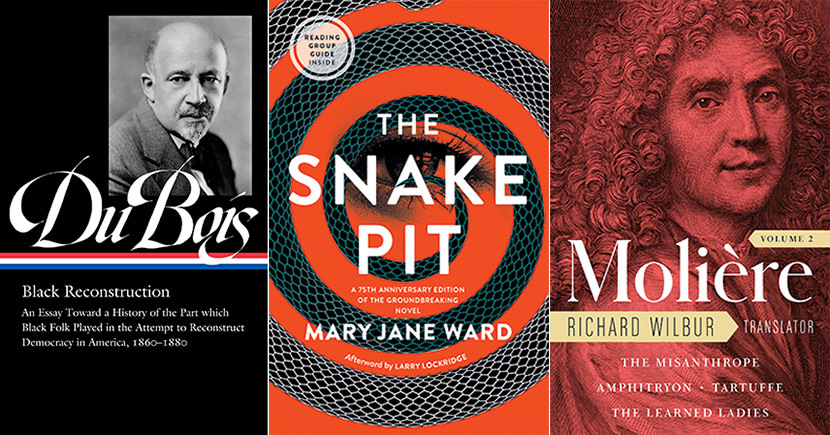
Upon publication in 1935, W.E.B. Du Bois’s Black Reconstruction offered a revelatory new assessment of Reconstruction—and of American democracy itself. One of the towering African American thinkers and activists of the twentieth century, Du Bois (1868–1963) brought all his intellectual powers to bear on America’s post–Civil War era of political reorganization, a time when African American progress was met with a white supremacist backlash and ultimately yielded to the consolidation of the unjust social order underpinning Jim Crow. Black Reconstruction is a pioneering, exemplary work of revisionist scholarship that, following censorship of Du Bois’s characterization of Reconstruction by the Encyclopaedia Britannica, was written to debunk influential historians whose racist ideas and emphases had disfigured the historical record. “The chief witness in Reconstruction, the emancipated slave himself,” writes Du Bois, “has been almost barred from court. His written Reconstruction record has been largely destroyed and nearly always neglected.” In setting the record straight Du Bois produced what coeditor Eric Foner has called an “indispensable book,” a magisterial work of detached scholarship that is also imbued with passionate outrage. Black Reconstruction shows Du Bois’s keen attunement to labor inequalities and their racial subtleties, as well as the ideological distortions of what he identifies as “the propaganda of history.” Presented here in a handsome hardcover edition and an authoritative text, Black Reconstruction is joined with important writings that trace his thinking about Reconstruction and its centrality in American history throughout his career.

World War II Memoirs: The Pacific Theater collects three powerful and evocative memoirs that that capture the intensity, savagery, and human complexity of the American land, naval, and air war against Japan. In With the Old Breed at Peleliu and Okinawa (1981) Marine veteran E. B. Sledge (1923–2001) bears unflinching witness to the horror and degradation of close-quarters combat in the industrial age. A mortarman serving in a front-line rifle company, Sledge survived thirty days of nightmarish fighting on the small coral island of Peleliu, which turned young Americans into “twentieth-century savages.” On Okinawa Sledge faced an even greater test of endurance amid driving rain, mud, and maggots in a landscape stripped bare by incessant shelling. A major source for the Steven Spielberg/Tom Hanks miniseries The Pacific, Sledge’s memoir is a haunting testament to his individual struggle to hold on to decency and sanity, and a moving tribute to the esprit de corps of the U.S. Marines. Flights of Passage (1988) is Samuel Hynes’s account of his induction into “the religion of flight” and the “secret society” of wartime service. With consummate literary skill Hynes (1924–2019) recounts the pleasures and dangers of stateside pilot training and the beauty and excitement he experienced flying an Avenger bomber over the front lines on Okinawa. Crossing the Line (1994, revised 2007) is Alvin Kernan’s vivid memoir of his remarkable wartime service as a navy enlisted man. Kernan (1923–2018) witnessed the aftermath of the Pearl Harbor attack, the launching of the Doolittle raid, and the battle of Midway onboard the Enterprise, survived the sinking of the carrier Hornet, and as an Avenger turret gunner witnessed the final flight of the naval hero Butch O’Hare. LOA’s edition restores to print photographs and maps not included in the available paperback edition of Crossing the Line.
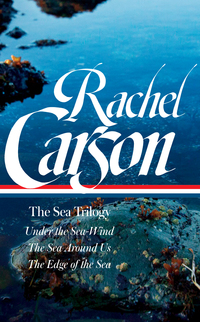
Rachel Carson (1907–1964) is perhaps most famous as the author of Silent Spring, but she was first and foremost a “poet of the sea” and the three books collected in this deluxe Library of America volume are classics of American science and nature writing. Under the Sea-Wind (1941), Carson’s lyrical debut, offers an intimate account of maritime ecology through the eyes of three of the ocean’s denizens, the individual lives of sanderling, mackerel, and eel dramatically intertwined in the enduring ebb and flow of the tides. The Sea Around Us (1951)—a winner of the National Book Award—draws on a wealth of oceanographic, meteorological, biological, and historical research to present its subject on a grand, biospheric scale, revealing not only many mysteries of the still-unfathomed depths, but a reverence for the sea as a source of global climate and of life itself. Concluding Carson’s “sea trilogy,” The Edge of the Sea (1955) explores the habits of the many small creatures that live on shorelines and in tidepools accessible to any beachcomber: part identification guide, part hymn to ecological complexity, it is a book that conveys the “sense of wonder” in nature for which Carson is justly celebrated. At a moment when overfishing, pollution, and global warming are causing catastrophic changes to marine environments worldwide, Carson’s lyrically detailed accounts of these environments offer a timely reminder of their beauty, fragility, and immense consequence for human life.
Christmas took on its modern cast in America, and over the last 150 years the most magical time of the year has inspired scores of astonishingly diverse and ingenious stories. In the original anthology American Christmas Stories, LOA and editor Connie Willis present a selection of these stories that showcases their democratic inclusiveness, and how the holiday became one of the signature aspects of our culture. Spanning from the origins of the American tradition of holiday storytelling in the wake of the Civil War to such modern writers as Nalo Hopkinson, Amy Tan, and Sandra Cisneros, and gathering in between unforgettable stories by Mark Twain, Jack London, James Thurber, Dorothy Parker, Langston Hughes, Katherine Anne Porter, and many more, this is the biggest and best anthology of American Christmas stories ever assembled. From ghost stories to the genres of crime, science fiction, fantasy, westerns, humor, and horror, stories of Christmas morning, gifts, wise men, nativities, family, commercialism, and dinners from New York to Texas to outer space, this anthology reveals the evolution of Christmas in America—as well as the surprising ways in which it has remained the same.
Celebrating the art of literary translation, LOA brings together all of Richard Wilbur’s unsurpassed renderings of Molière’s plays—themselves towering achievements in English verse—in a two-volume gift set. One of the most accomplished American poets of his generation, Wilbur (1921–2017) was also a prolific translator of French and Russian literature. His verse recreations of Molière’s plays are especially admired by readers and are still performed today in theaters around the world; now, for the first time, all ten of them are brought together in a uniform edition. Volume One collects Molière’s delightful early farces The Bungler, Lover’s Quarrels, and The Imaginary Cuckold, or Sganarelle; the comedies The School for Husbands and The School for Wives, about the efforts of middle-aged men to control their young wives or fiancés, which so delighted female theatergoers in Moliere’s seventeenth-century France; and Don Juan, Molière’s retelling of the Don Juan story, performed only briefly in the playwright’s lifetime before pious censure forced it to close and not part of the repertoire of the Comédie-Française until 1847. Volume Two comprises the elusive masterpiece The Misanthrope, often said to occupy the same space in comedy as Shakespeare’s Hamlet does in tragedy; the fantastic farce Amphitryon, about how Jupiter and Mercury commandeer the identities of two mortals; Molière’s biting satire of religious hypocrisy, Tartuffe; and The Learned Ladies, like Tartuffe, the drama of a household turned suddenly upside down. These volumes include Wilbur’s original introductions and a foreword by Adam Gopnik on the exquisite art of Wilbur’s translations.
After experiencing a nervous breakdown in 1940, novelist Mary Jane Ward (1905–1981) was misdiagnosed as schizophrenic and committed to a psychiatric hospital in New York. From that horrific experience came this landmark novel. The Snake Pit tells the story of Virginia Cunningham, a young white middle-class woman who finds herself in a psychiatric ward with no memory of how she got there. It opens with Virginia in a highly confused state of mind, the reader initially as challenged as Virginia to make sense of her surroundings. Virginia’s treatments seem a series of cruel punishments inflicted on her for crimes she cannot name, while the penalty for failing to follow the hospital’s many seemingly arbitrary rules is transfer to another, even worse ward. Ward’s unforgettable novel helped set in motion important investigative journalism and the introduction of state legislation to reform the care and treatment of the mentally ill. Too long out of print, it belongs in the company of Sylvia Plath’s The Bell Jar and Ken Kesey’s One Flew Over the Cuckoo’s Nest—novels it influenced. This authoritative Library of America paperback includes an afterword by Ward’s cousin, Larry Lockridge, and a Reading Group Guide featuring additional material about Ward and the real-life roots of the novel.
Back in 2015, Library of America included Fools’ Gold (1958), a major suspense novel by Dolores Hitchens (1907–1973), in Women Crime Writers of the 1940s & 50s, the two-volume anthology that reasserted the centrality of women writers in the canon of American crime fiction. The Hitchens revival continues this summer with paperback reprints of her two distinctive contributions to the hardboiled private eye genre. In Sleep with Strangers (1955), what starts as a routine missing persons case leads gumshoe Jim Sader into a labyrinth of double-dealing, lust, jealousy, blackmail, and homicide amid oil and real estate speculation in a noirish 1950s Long Beach, California. Hitchens delivers a dark, psychologically intense tale that will have even seasoned mystery fans guessing until her shocking conclusion. Jim Sader returns in Sleep with Slander (1960), where the hunt for a kidnapped child sends him down a rabbit hole of family secrets, blackmail, insurance fraud, insanity, and ultimately murder. Crime fiction authority Bill Pronzini called Sleep with Slander “the best hard-boiled private-eye novel written by a woman—and one of the best written by anybody.” Both novels will also include a biographical sketch of Hitchens, authoritative notes, and a specially commissioned new introduction by leading contemporary crime writer Steph Cha, whose 2019 novel Your House Will Pay won the Los Angeles Times Book Prize and the California Book Award.

